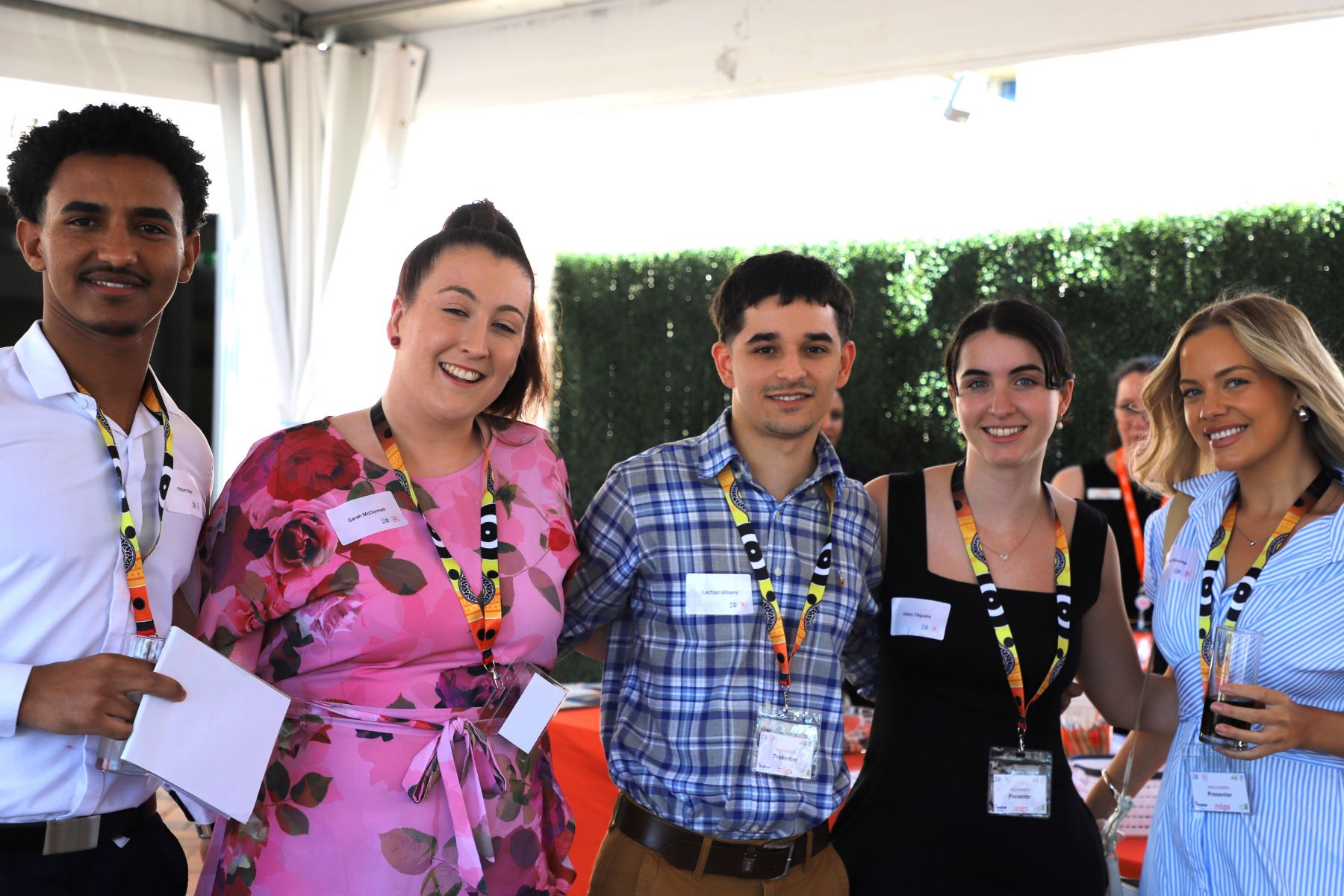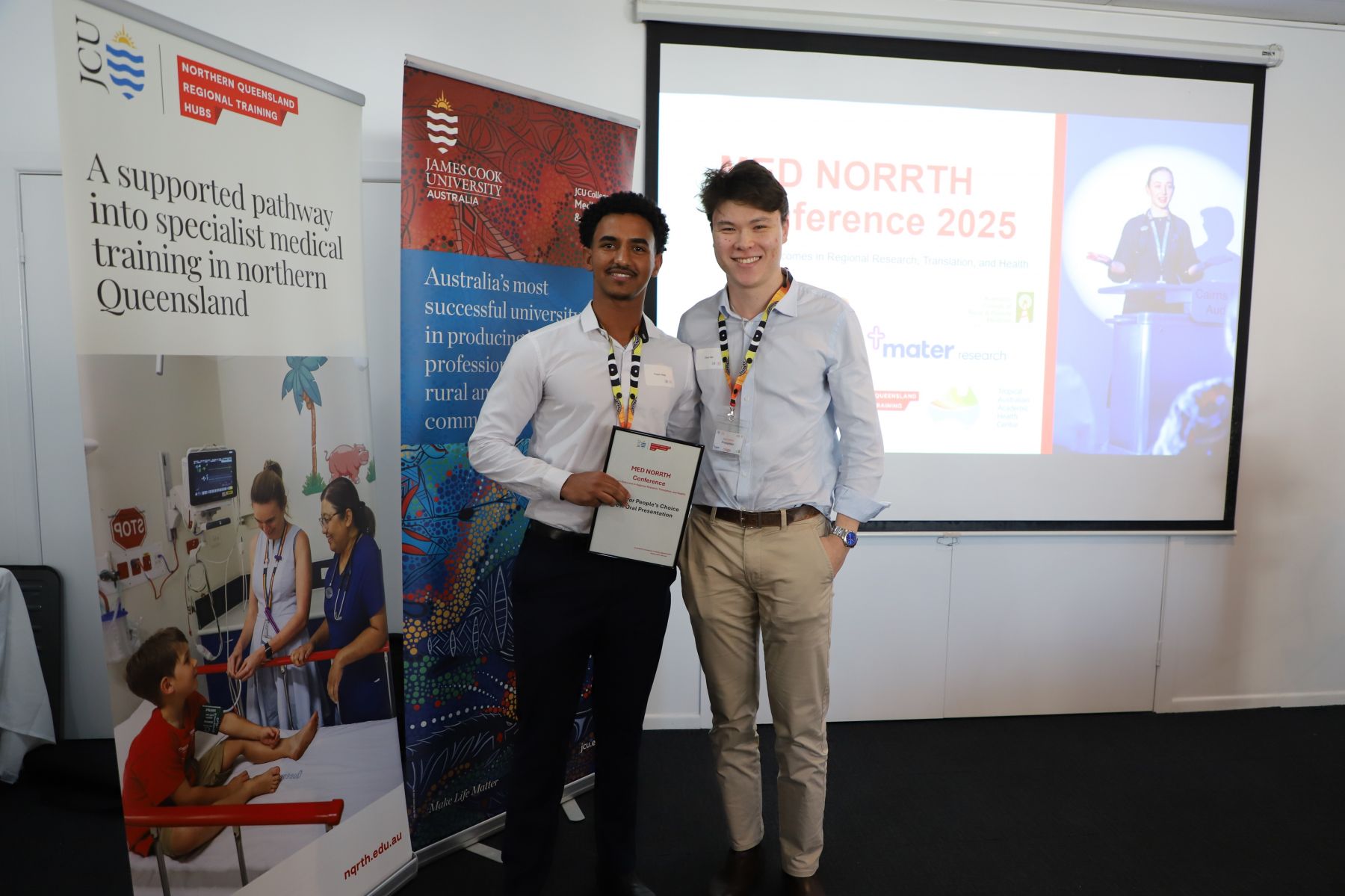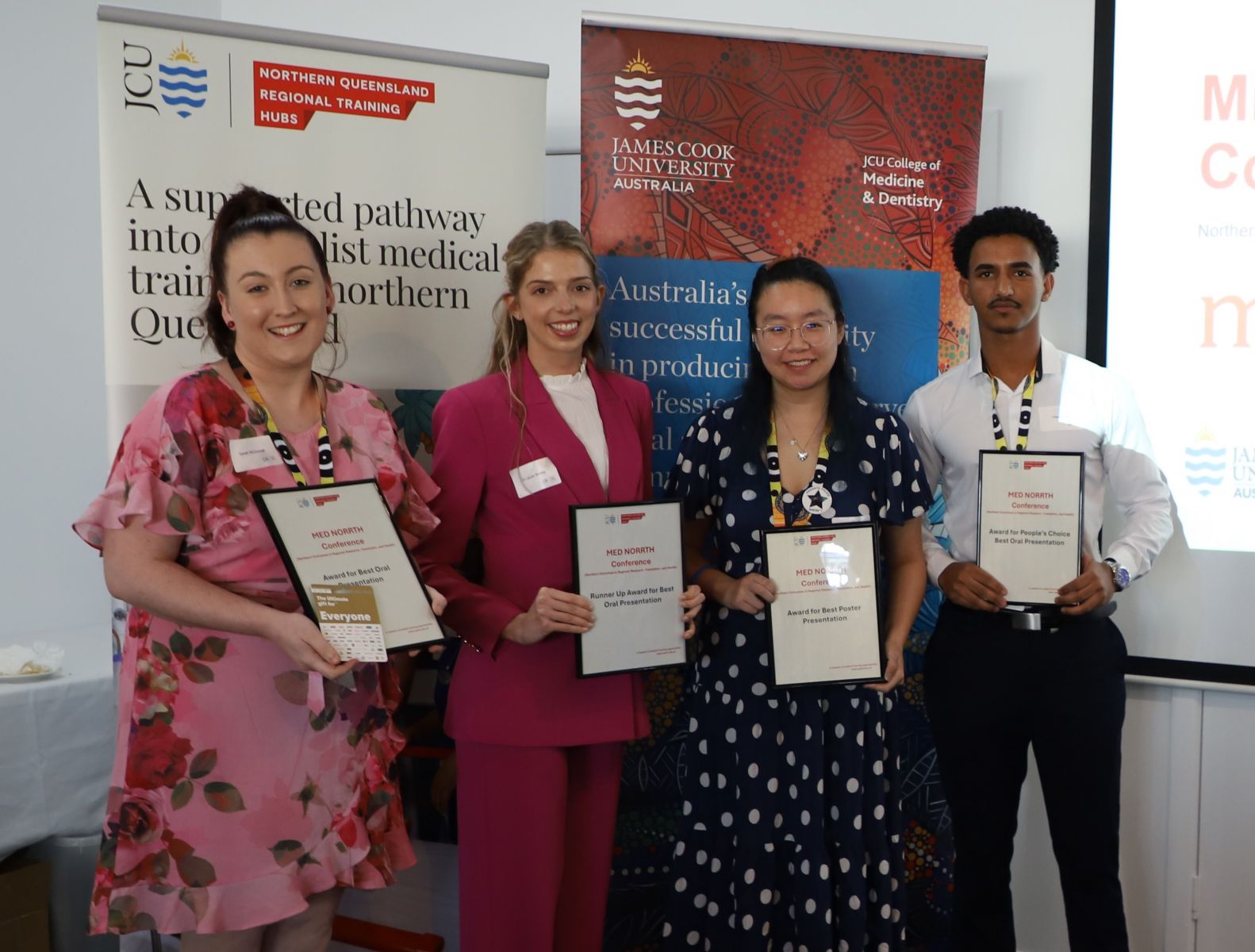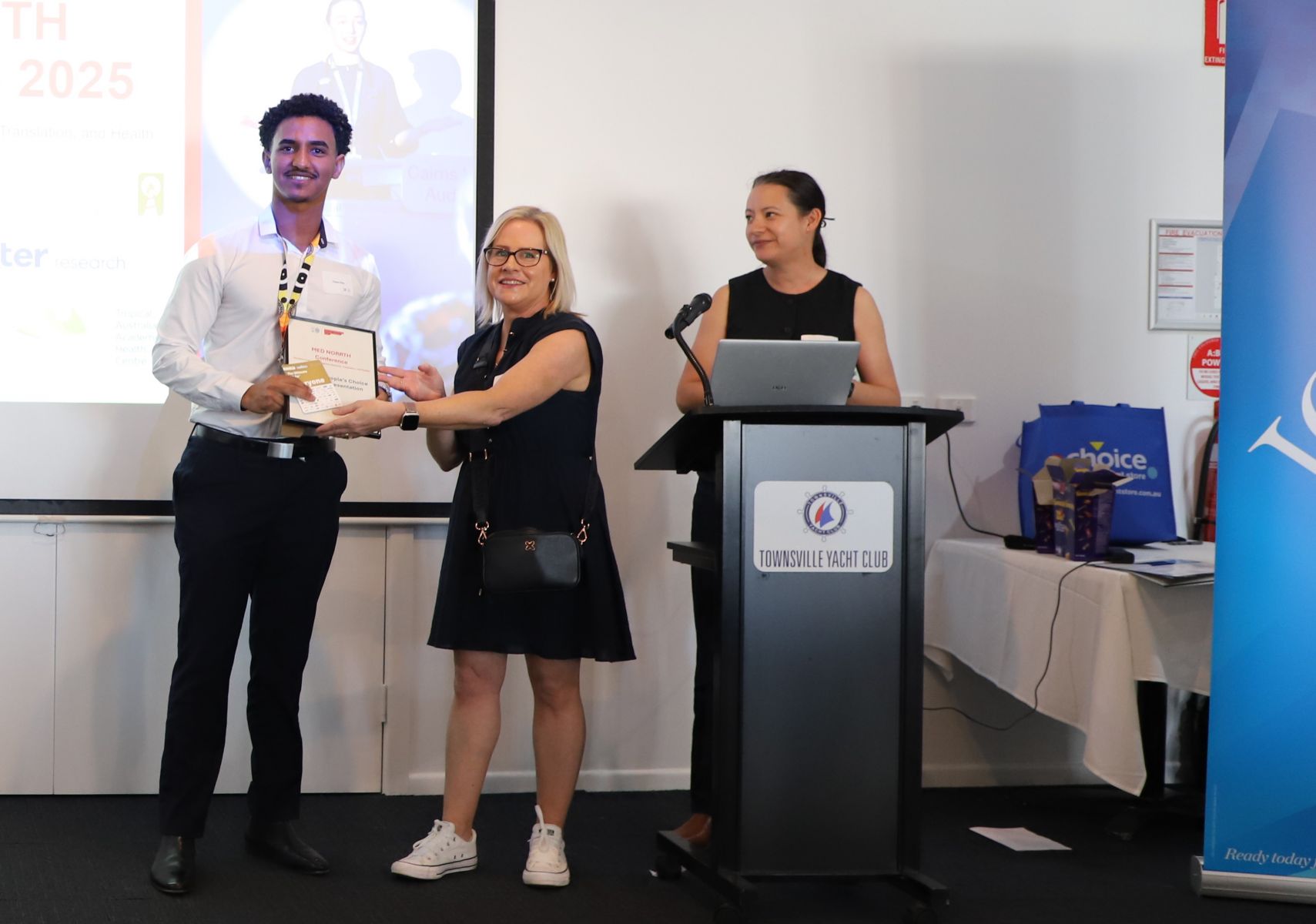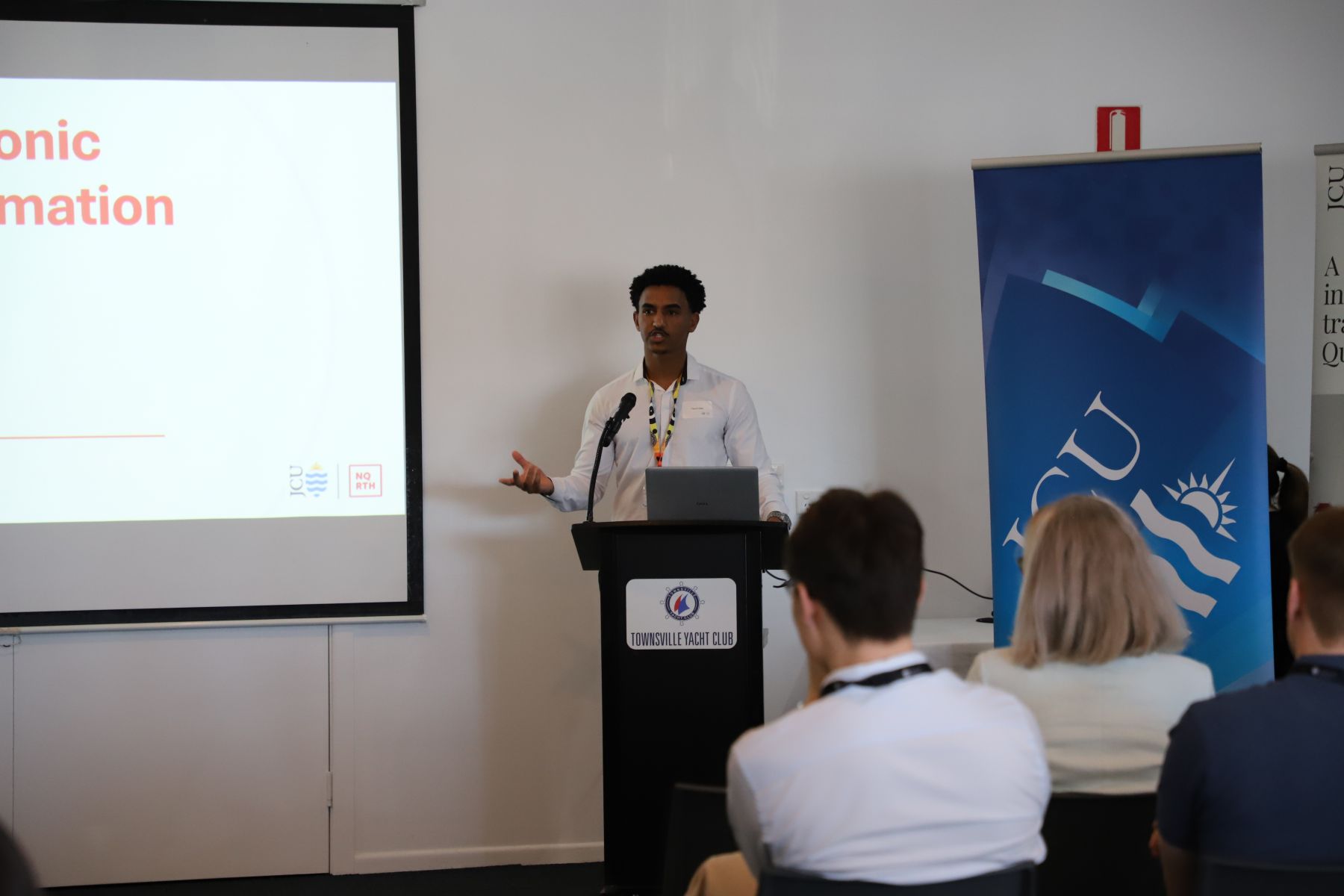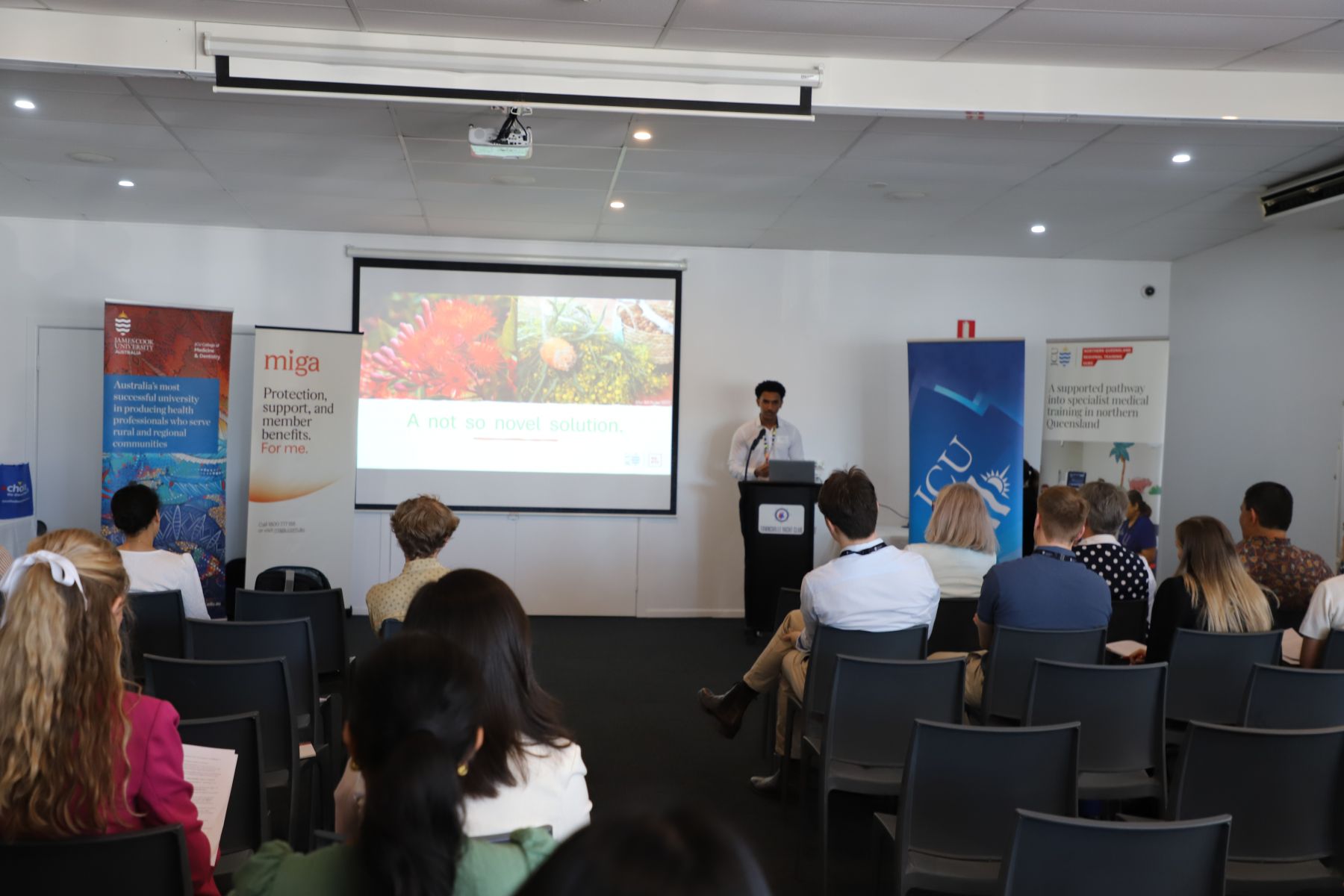17 September 2025
How research opens doors for JCU med students and doctors

When second-year medical student Fitsum Abay stepped into the Australian Institute of Tropical Health and Medicine (AITHM) laboratory for the first time, he wasn’t just ticking a box, he was testing a future.
“I knew about the work happening at AITHM and was curious to see what research was really like, so the bursary felt like a great opportunity to get involved,” he says.
“It gave me a chance to step into the lab, challenge myself, and learn from experienced researchers.”
That decision led him to a project with big possibilities and deep local roots: Aboriginal Bush Medicine as a Source of Anti-Inflammatory Agents. Guided by Associate Professor Phurpa Wangchuk and supported by Dr Shatarupa Das, Fitsum helped test how compounds drawn from traditional remedies affected human immune cells.
“The most eye-opening aspect for me was seeing how much interdisciplinary collaboration was involved, with botanists, immunologists, chemists, and community leaders all working together towards a shared goal,” he says.
Turning curiosity into capability
Through the Northern Queensland Regional Training Hubs (NQRTH) MBBS Summer Research Bursary Program, Fitsum built a toolkit that will serve him on the ward as much as it does at the bench.
“I gained hands-on experience in basic lab techniques, immunology, and science communication, which gave me a strong introduction to research,” he says.
“Working closely with incredible mentors such as Dr Rupa (Dr Shatarupa Das) allowed me to discover my interest in laboratory work and encouraged me to keep research as part of my career journey in medicine.”
That blend of mentorship and method paid off on stage, too. Presenting at the recent MED NORRTH, a research conference hosted by NQRTH, JCU’s College of Medicine and Dentistry, and the Tropical Australian Academic Health Centre (TAAHC), was, at first, daunting.
“Presenting at MED NORRTH was nerve-racking at first, especially presenting alongside people far more qualified than me, but it turned out to be a really positive experience,” Fitsum says.
“Everyone was supportive, and there was such a wide range of interesting projects being shared. Winning the People’s Choice Award was very encouraging and being recognised by people you admire was empowering.”
Why this work matters — for patients and for the profession
Associate Professor Wangchuk, who leads the project that hosted Fitsum during his research experience, says the work is part of a broader, NHMRC-funded effort to identify novel drug leads from Aboriginal medicinal plants and Wet Tropics flora affected by climate change, with a specific focus on inflammatory bowel disease (IBD).
“IBD affects 1 in 200 Australians and there is no cure,” he explains. “The aim is therefore to identify novel drug lead molecule from tropical plants for treating IBD.”
Beyond drug discovery, the project honours knowledge systems that pre-date modern medicine.
“This project not only generated data in advancing medical and pharmaceutical drug discovery knowledge but also in recognising and respecting Aboriginal knowledge systems as part of modern medical research,” Associate Professor Wangchuk says.
“With JCU situated in the heart of the Wet Tropics, home to rich biodiversity and more than 20 Aboriginal communities, my research team works closely with community partners to help them commercialise their anti-inflammatory and anticancer medicinal plants.”
For a medical student, that context is transformative. It shows research not as an abstract exercise, but as a collaborative, community-engaged pathway to better therapies.
Growth you can measure
From a supervisor’s vantage point, the benefits are clear.
“Although Fitsum was new to the project and the research environment, he proactively participated in the trainings provided by my research group,” Associate Prof Wangchuk says.
“Under Dr Das’s guidance he picked up the laboratory skills very fast and learnt cell culture assay. He also joined monthly lab meetings, discussed study planning, and developed skills in drug discovery, lab-based cell assay, and communication/presentation skills.”
That skills-mix matters to clinical careers. Evidence-based medicine depends on asking good questions, analysing data, and communicating findings — exactly the habits research cultivates.
It’s why Associate Prof Wangchuk is a strong advocate for early exposure.
“The Summer Research Bursary Program gives medical students the chance to step outside the traditional clinical curriculum and immerse themselves in research at an early stage,” he says.
“This exposure helps them build critical skills in inquiry, analysis, and problem-solving that are directly relevant to evidence-based medicine.”
In Fitsum’s case, the experience has already led to a planned co-authored paper with the team — an impressive milestone in an MBBS journey.
A platform for students, junior doctors and early-career researchers
If the lab is where confidence is built quietly, MED NORRTH was where it was tested and celebrated.
The conference provided a friendly stage for medical students, junior doctors and early career health researchers to present, swap ideas, and find mentors across northern Australia.
For Fitsum, the atmosphere mattered with supportive peers, generous feedback, and an audience keen to see new ideas grow.
“It was motivating and inspiring,” he says.
“These programs give students insight into what research looks like in practice. They also help you build valuable skills such as data analysis, study design, and science communication, which are not only applicable to research but also highly relevant in clinical practice.”
“There’s research in every field you can imagine”
Asked what he’d say to other JCU medical students, Fitsum doesn’t hesitate.
“Absolutely. There’s research in every field you can imagine, so you’ll always find something that sparks your interest,” he says.
“My advice would be not to worry about asking the seemingly obvious questions. You’ll get the most out of every experience and enjoy the work far more if you stay curious and engaged.”
Associate Prof Wangchuk offers a parallel message to clinicians and researchers thinking about taking on a student.
“Supervising medical students on research projects is an incredibly rewarding experience,” he says.
“Students bring fresh perspectives, energy, and enthusiasm, which often revitalises the research environment. Most importantly, it helps shape the next generation of clinician-researchers who will carry forward the values of innovation, collaboration, and evidence-based practice.”
Fitsum’s story is one student’s path, but it captures the larger picture: research isn’t separate from medicine; it strengthens it.
Whether you’re a student testing the waters or a doctor ready to shape a project, JCU’s ecosystem —labs, mentors, and forums like MED NORRTH — offers a practical way to grow, contribute, and improve care for northern communities.
How to get involved
Explore research this summer with NQRTH!
Are you a JCU medical student eager to dive into research and make a meaningful impact in rural, remote, and tropical health? The NQRTH MBBS Summer Research Bursary Program offers hands-on research experience over the summer break (December 2025 – March 2026).
· Who can apply: MBBS Years 1–4
· Support: $500 bursary for 4–6 weeks of research alongside experienced researchers
· Locations: Townsville, Cairns, and remote options
· Fields & methods: Clinical research, infectious diseases, Indigenous health, community development; projects may involve lab-based immunology, systematic reviews, qualitative studies, or bioinformatics
· Project examples: Investigating the impact of climate change on melioidosis, analysing health workforce policy reform, exploring empathy in neonatal care education
· Supervision: Experienced researchers across a wide range of disciplines
Whether you’re curious about becoming a clinician-researcher or simply want to explore the world of medical research, this is a practical way to learn, grow, and contribute to real-world health challenges. Application close: 5pm Friday 26 September 2025. Find out more about the program: https://www.nqrth.edu.au/training-opportunities/research-opportunities/summer-research-bursaries/


NQRTH is an initiative of the Australian Government's Integrated Rural Training Pipeline (IRTP) and is facilitated by James Cook University in partnership with public and private hospitals, Queensland Aboriginal and Islander Health Council (QAIHC), health services, Aboriginal Community Controlled Health Organisations (ACCHOs) and GP clinics.
Cairns region
(07) 4226 7138
Central West region
(07) 4764 1547
Mackay region
(07) 4885 7122
North West region
(07) 4764 1547
Torres and Cape region
(07) 4095 6103
Townsville region
(07) 4781 3424



